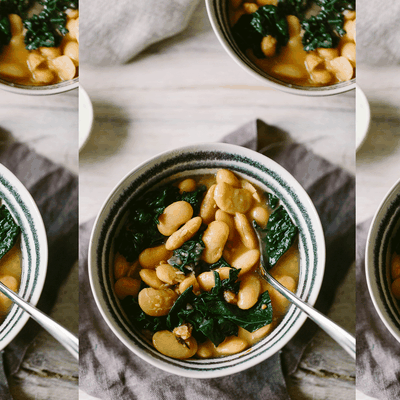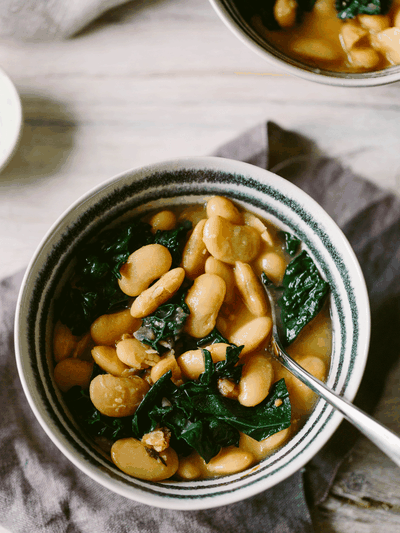

How To Look After Your Gut Health In The Winter Months
Know The Signs
“Given the gastrointestinal tract houses nearly 80% of our immune system, it’s a no-brainer to look after your gut as we head into the colder winter months. Improved gut health won’t necessarily ‘boost’ your immune system by itself, but robust gut health is a powerful building block in a healthy immune system. Symptoms of an under-functioning immune system include fatigue and tiredness; struggling to sleep or stay asleep; frequent colds and sore throats; cuts and bruises which take longer to heal; and digestive issues like bloating, constipation and loose stools.” – Simone Thomas, wellness expert
Diversify Your Diet
“A healthy immune system is one with a diversity of gut microbes, and the best way to support this is with a variety of plant foods. The more diverse your diet, the more fuel you’ll be giving your gut – each plant food you eat will feed different bacteria in the gut and allow it to thrive. Aim for 30 different plant foods per week. Instead of gem lettuce, opt for a mixed bag of lettuce to provide four or five different plants; buy mixed grains instead of rice or quinoa; and get into the habit of buying mixed varieties of apples, pears, peppers and squashes, as different types of the same plant count as an additional plant point.” – Farzanah Nasser, nutritional therapist
Get Outside
“Fresh air is far cleaner and better for you than indoor air. First, we breathe in microbes from trees and plants that support immune health, and second, getting outside helps regulate our circadian rhythm, which supports good sleep, a key factor in immunity. Being outside in nature has also been shown to lower stress, which we also know helps with immunity.” – Farzanah
Control Stress
“Stress is one of the biggest factors that contributes to lower immunity. In fact, studies show stress actively lowers levels of two key microbes involved in immune health. If you are prone to sniffles and colds, getting on top of stress is key, and practising gratitude is a great place to start. Grab a notebook and go through your day, making a note of all the things you’re grateful for – it can be as simple as a nice coffee or your warm bed. Research shows a gratitude journal is a simple but powerful way to positively affect the gut microbiome.” – Farzanah
Cut Back On Sugar & Alcohol
“Sugar has a negative effect on both the gut microbiome and immune function. Sugar drives inflammation and impacts our white blood cells’ ability to fight infection. Alcohol has a similar effect. When you drink, your body’s number one priority is to clear alcohol from your system, meaning it prioritises this above all else. Alcohol also impairs sleep, which is essential for immunity.” – Farzanah
Supplement Wisely
“At the first sign of a cold or sniffle, take elderberry syrup. The flu virus has a specific enzyme that sticks to the respiratory tract, and elderberry can deactivate this enzyme. I also swear by Bimuno, a great prebiotic powder supplement that’s been shown to raise levels of bacteria proven to support immune health. It’s tasteless and dissolves into anything – I add it to my morning coffee. We should all be supplementing with vitamin D from October to March, too. Get your levels checked – either through your GP or services like BetterYou or Medichecks – and then supplement accordingly. Adding in nutrients to your diet when you can also makes a difference. I add Aduna’s Digestion blend to smoothies – it contains turmeric, chamomile and ginger, which are calming and anti-inflammatory for the gut and immune system.” – Farzanah
Get An Early Night
“Quality sleep is linked to a higher diversity of the gut microbiome. Just be sure to avoid eating late at night and avoid constant snacking throughout the day – your gut bugs need time to reset to maintain a healthy gut lining and a strong immune system. Intermittent fasting can be useful.” – Dr Tamara Alireza, functional medicine practitioner at Skinfluencer
Load Up On Probiotics
“Probiotics – found in fermented foods like kefir, miso, sauerkraut and live yoghurt – help to repopulate the microbiome with beneficial strains of bacteria, while prebiotics such as Jerusalem artichokes, onions, garlic, leeks, asparagus, flaxseed, cocoa, oats and apples, act as food for your microbiome and help your good bugs flourish. Changing your diet to include these foods can result in beneficial changes within a matter of days. At the same time, limit food high in saturated fats, which can impair the gut barrier and reduce microbiome diversity.” – Tamara
Ditch Diet Coke
“Research shows certain artificial sweeteners can damage your gut microbiome. Try to avoid diet drinks and, when choosing a drink this festive season, avoid a diet mixer with a spirit – you’re better off with a full-fat version.” – Orla Stone, nutritionist & gut health specialist at Deeply
Stay Active
“Moderate exercise – cycling, walking, jogging and strength training – done three to five times a week, with each session lasting less than 60 minutes, will reduce inflammation and support a healthy immune response. Exercise has been shown to induce positive changes to the gut and can improve your body’s response to a vaccination – worth keeping in mind if you have a jab on the horizon. Keep in mind that most benefits are reaped when exercise is done outdoors. You won’t get the same benefits from a poorly ventilated, crowded gym class.” – Kim Plaza, technical advisor at Bio-Kult
For more from the experts, visit SimoneThomasWellness.com, FarzanahNasser.com, DeeplyFoods.com, Bio-Kult.com & Skin-Fluencer.com
DISCLAIMER: Features published by SheerLuxe are not intended to treat, diagnose, cure or prevent any disease. Always seek the advice of your GP or another qualified healthcare provider for any questions you have regarding a medical condition, and before undertaking any diet, exercise or other health-related programme.
DISCLAIMER: We endeavour to always credit the correct original source of every image we use. If you think a credit may be incorrect, please contact us at info@sheerluxe.com.